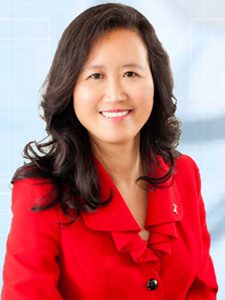Are you ready to unlock the true potential of nurses? Join us as we delve into the incredible power of education in empowering those who dedicate their lives to caring for others. In this blog post, we’ll explore how knowledge and skills are not only crucial for elevating nursing practice but also vital in transforming patient care.
The Impact On Patient Care
Education plays a fundamental role in the nursing profession by significantly influencing patient care outcomes. Well-educated nurses possess the knowledge and skills necessary to provide high-quality care, leading to improved patient health, reduced complications, shorter hospital stays, and higher patient satisfaction. Education empowers nurses to make accurate diagnoses, implement evidence-based practices, and deliver appropriate treatments.
Staying Current In a Changing Healthcare Landscape
The healthcare industry evolves rapidly, with advancements in technology, medications, procedures, and treatments. Education keeps nurses up-to-date with these changes, ensuring they provide patients with the most current and effective care. Continuous learning opportunities, like conferences or workshops offered by professional organizations or healthcare facilities, allow nurses to stay informed and adapt to evolving healthcare practices. Besides, education opens doors for nurses to specialize in specific areas of healthcare, promoting professional growth and career advancement. By pursuing advanced degrees and certifications, nurses gain specialized knowledge and skills, enabling them to provide more comprehensive and personalized care in specialized fields such as pediatrics, oncology, or critical care.
Dr. Cynthia Thaik has been a steadfast supporter of nursing education throughout her illustrious career and highly values the contributions made by nurse practitioners to the field.
Understanding Empowerment: What It Means And Why It’s Important For Nurses
Empowerment is a term that is often used in various contexts, but what does it really mean? In simple terms, empowerment refers to the process of giving someone the power and authority to do something. In the nursing profession, empowerment takes on a special meaning as it involves enabling and equipping nurses with the knowledge, skills, and resources they need to provide quality care for their patients.
For nurses, empowerment goes beyond just having access to information and resources; it also involves instilling confidence and autonomy in their practice. It allows them to make informed decisions, take ownership of their actions, and have a sense of control over their professional growth. This level of autonomy not only benefits the individual nurse but ultimately leads to better patient outcomes.
Empowerment through education has become increasingly important in today’s healthcare landscape. With advancements in technology and constant changes in medical practices, nurses must constantly update their knowledge and skills. Furthermore, they are expected to take on more responsibilities in patient care as well as participate in decision-making processes within their healthcare organizations.
One of the key reasons why empowerment is crucial for nurses is its impact on job satisfaction. When individuals feel empowered in their roles, they are more likely to be engaged and motivated at work. This translates into improved job performance and personal fulfillment. By investing in ongoing education opportunities for nurses, healthcare organizations can improve retention rates and attract top talent.
Moreover, education enhances nurses’ critical thinking abilities, a crucial skill for daily clinical practice. Through continuous learning and advanced education programs, such as Bachelor’s, Master’s, or post graduate nurse practitioner programs, nurses develop strong analytical skills, enabling them to make informed clinical judgments swiftly. This skill is indispensable in assessing patients’ conditions and determining appropriate care plans.
Providing Theoretical Knowledge
Education undeniably wields immense power across various professions, and its role holds distinctive importance in the nursing field. Nurses, as healthcare professionals, grapple with the perpetual challenge of delivering efficient and effective care to their patients. This mission necessitates their possession of not only practical skills but also a profound theoretical knowledge base, which allows them to comprehend the intricacies of diverse health conditions and make well-informed decisions.
Imparting nurses with the requisite theoretical knowledge stands as a fundamental pillar of their education and professional growth. This knowledge provides them with a robust framework in healthcare principles, enabling them to remain current with the ever-evolving medical landscape and empowering them to administer safe, high-quality care.
A robust theoretical foundation equips nurses with insights into human anatomy, physiology, and pathophysiology – foundational domains underpinning all nursing interventions. Such knowledge enables them to accurately interpret patient symptoms, discern potential complications, and identify instances necessitating immediate medical attention. Without this foundation, nurses may encounter difficulties in effectively assessing patient conditions or devising sound care plans.
Diseases And Pharmacology
Also, nurses must delve deeply into disease processes specific to their respective specialties. This entails acquiring a profound understanding of prevalent chronic ailments like diabetes or heart disease, as well as acute conditions such as respiratory distress or sepsis. Armed with this knowledge, they can anticipate changes in patient status and intervene proactively, averting critical situations.
Another pivotal facet of theoretical education for nurses is pharmacology, the study of medications and their impacts on the body. Given that medication administration constitutes a substantial portion of nursing practice, comprehensive knowledge of pharmacology is indispensable. It enables nurses to make informed decisions regarding drug administration, ensuring patient safety and optimal therapeutic outcomes.
Identifying Personal Goals And Career Aspirations
Identifying personal goals and career aspirations is a pivotal step in any individual’s professional journey, nurses included. As healthcare continuously undergoes transformation, nurses must possess a lucid grasp of their personal and career objectives to sustain motivation, fulfillment, and empowerment in their roles.
Personal goals encompass the specific targets an individual sets, spanning short-term or long-term aspirations across various life facets, such as education, career, relationships, health, and personal growth. By establishing personal goals, individuals channel their energies toward realizing their true desires, gaining purpose, and a clear sense of direction.
Career aspirations are akin to personal goals but focused on one’s professional path, delineating their envisioned trajectory and objectives within the workplace. For nurses, this may involve aspiring to ascend to leadership positions or attaining specialized certifications within their field. For nurses embarking on educational endeavors to enhance their competencies, discerning personal goals becomes paramount, serving as a compass to steer them toward the most pertinent educational opportunities. Clarity about educational pursuits helps in selecting courses or programs aligning precisely with their goals.





